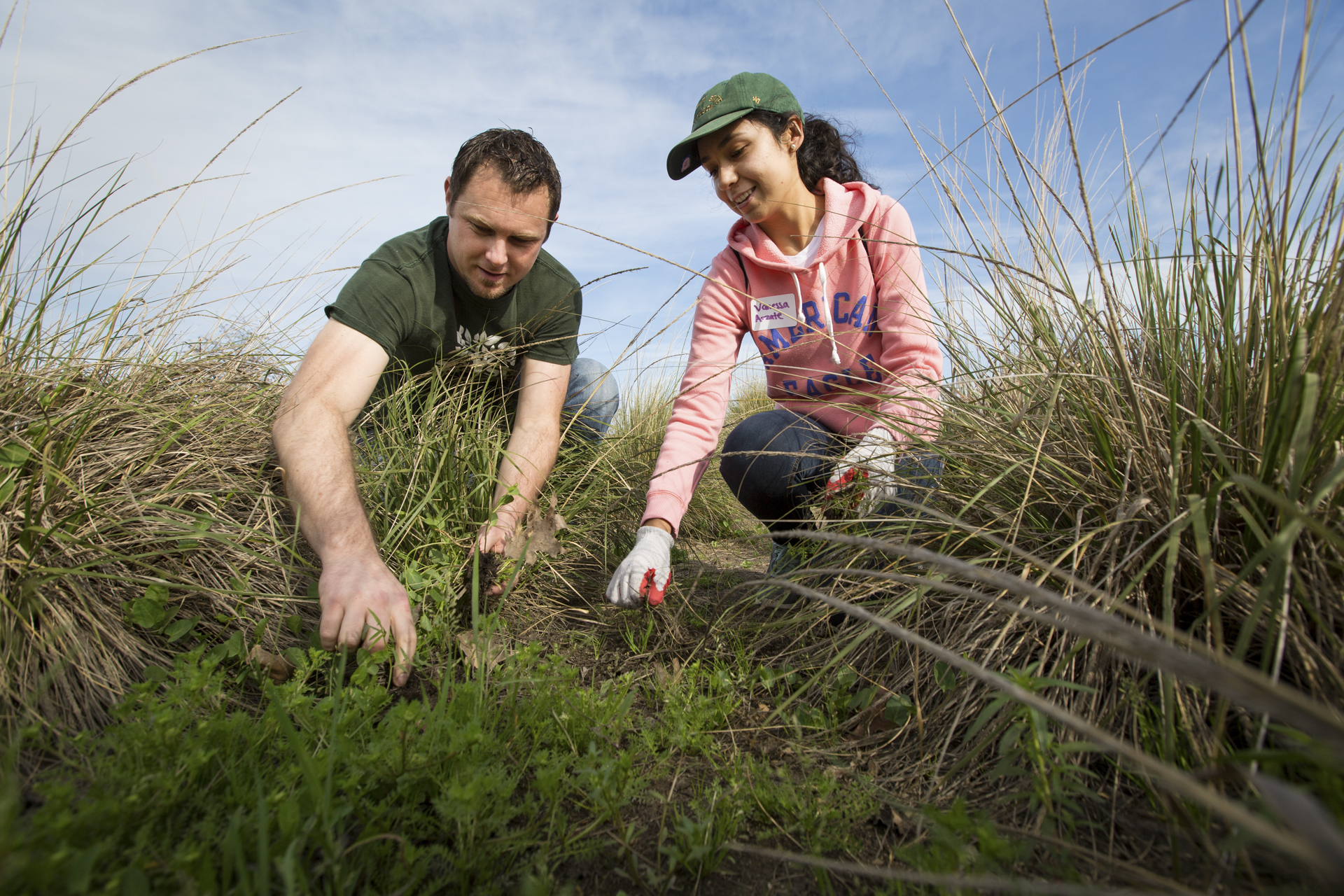Story Content
Ryan Todd builds ‘culture of sustainability’ at Sac State

April 03, 2017
Ryan Todd graduated from Sacramento State in 2009 with a degree in environmental studies and a resolve to do his part to help the planet. Now, he’s back at the University doing exactly that, leading the team responsible for keeping Sac State one of the most sustainable campuses in the world.
Todd recently was profiled by the California State University as part of a series focusing on students, faculty, and alumni who are proving the transformative impact of a CSU education. He talked about how he became a student at Sac State, getting involved in sustainability issues, and some of the projects he is working on as the University’s sustainability manager.
Sacramento State’s roots as an environmentally friendly university run deep – literally. The campus is home to more than 3,500 trees and has been designated a Tree Campus USA by the Arbor Day Foundation five years in a row. Sac State was one of just 21 campuses and the only CSU to make The Princeton Review 2017 Green College Honor Roll, and the Closed Loop program – through which green waste such as leaves and lawn clippings is turned into compost used across campus as well as clean natural gas for the University’s shuttles – received a Best Practice Award at last year’s CSU Facilities Management Conference.
Todd embraces the concept of the “campus as a living lab,” involving students, faculty, and other parts of the University whenever possible in sustainability initiatives. The sustainability office has a new solar-powered golf cart, for example, thanks to engineering students who designed it using leftover solar panels. The Closed Loop program is another example: Students are dispatched to collect food waste, and the compost generated is used by groups across campus including Capital Public Radio, Associated Students Inc. (ASI) and the ASI Children’s Center.
“Everything we do, we do in collaboration with different groups,” Todd said.
Some of the projects Todd and his team – Energy and Utilities Analyst and Sac State alum Nathaniel Martin, Sustainability Analyst Kristina Cullen, and Recycling and Sustainability Coordinator and alum Joey Martinez – are working on include:
- Replacing standard water faucets with infrared, motion-sensor faucets that save water, as well as replacing showerheads at Yosemite Hall, a project funded by a grant from the state Department of Water Resources.
- Partnering with local elementary schools to bring students onto campus to learn about sustainability issues and expose them to college.
- Retrofitting lighting inside Mendocino Hall to feature “daylight harvesting” technology, which automatically dims indoor lights depending on the amount of natural light coming into a room.
- Facilitating competition between residence halls to see which can conserve the most energy.
- Developing the campus’ first greenhouse gas emissions report following President Robert S. Nelsen’s pledge to reduce such emissions at Sac State and achieve carbon neutrality.
The University’s new “Science II” building, which breaks ground this summer, is expected to be certified LEED Gold, becoming the third building on campus to earn a LEED designation (the other two are The WELL and American River Commons).
“What we’re doing is trying to create a culture of sustainability,” Todd said. “When you do that, it makes being environmentally responsible happen naturally. It sets the expectation that this is just how we do things at Sac State.”
To learn more about sustainability initiatives on campus, visit the Sac State Sustainability homepage at csus.edu/aba/sustainability.